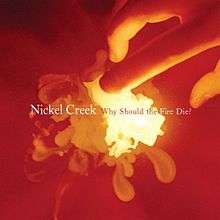Ago
Ago or AGO may refer to:
People
Places
Other uses

Argonaute
The Argonaute protein family plays a central role in RNA silencing processes, as essential catalytic components of the RNA-induced silencing complex (RISC). RISC complex is responsible for the gene silencing phenomenon known as RNA interference (RNAi). Argonaute proteins bind different classes of small non-coding RNAs, including microRNAs (miRNAs), small interfering RNAs (siRNAs) and Piwi-interacting RNAs (piRNAs). Small RNAs guide Argonaute proteins to their specific targets through sequence complementarity (base pairing), which then leads to mRNA cleavage or translation inhibition.
Discovery
The RNA interference (RNAi) was first reported in 1995 by Guo and Kemphues, and similar pathways collectively referred to as RNA silencing were discovered in plants and fungi. The beginning of people’s understanding of the mechanism of RNA silencing began only in 1998 with the experiments of Fire and colleagues demonstrating that double-stranded RNA triggered RNAi. RNA silencing pathways process long RNAs into small RNAs that direct the repression of transcription or translation of nucleic acid targets with sequence corresponding to the small RNAs. These single-stranded RNAs, referred to as guide strands, are incorporated into RNA silencing effectors complexes such as the RNA-induced silencing complex (RISC). These RNA silencing effector complexes contain Argonaute family proteins.
Eveline
"Eveline" is a short story by the Irish writer James Joyce. It was first published in 1904 by the journal Irish Homestead and later featured in his 1914 collection of short stories Dubliners.
The story
A young woman of about nineteen years of age sits by her window, waiting to leave home. She muses on the aspects of her life that are driving her away, while "in her nostrils was the odor of dusty cretonne". Her mother has died as has her older brother Ernest. Her remaining brother, Harry, is on the road "in the church decorating business". She fears that her father will beat her as he used to beat her brothers and she has little loyalty for her sales job. She has fallen for a sailor named Frank who promises to take her with him to Buenos Aires. Before leaving to meet Frank, she hears an organ grinder outside, which reminds her of a melody that played on an organ on the day her mother died and the promise she made to her mother to look after the home. At the dock where she and Frank are ready to embark on a ship together, Eveline is deeply conflicted and makes the painful decision not to leave with him. Nonetheless, her face registers no emotion at all.

Why Should the Fire Die?
Why Should The Fire Die? is the third major album release and fifth album overall by progressive acoustic trio Nickel Creek. The album was released on Sugar Hill on August 9, 2005 in the United States, and on August 8 in the United Kingdom.Why Should the Fire Die? is the first Nickel Creek album to feature string bassist Mark Schatz.
The album peaked at #17 on the Billboard 200, making it the highest charting Nickel Creek album on the chart to date.Why Should the Fire Die? also topped both the magazine's Top Internet Albums and Top Bluegrass Albums charts. By November 2006, the album had sold 258,784 copies. The album earned Nickel Creek two Grammy Award nominations: the award for Best Contemporary Folk Album, an award which they previously won for This Side, and the award for Best Country Instrumental Performance ("Scotch & Chocolate").
Why Should the Fire Die? was praised by contemporary music critics primarily for its creativity, and for its instrumental quality, with one critic complimenting the album's "sheer musical brilliance".
Podcasts:

